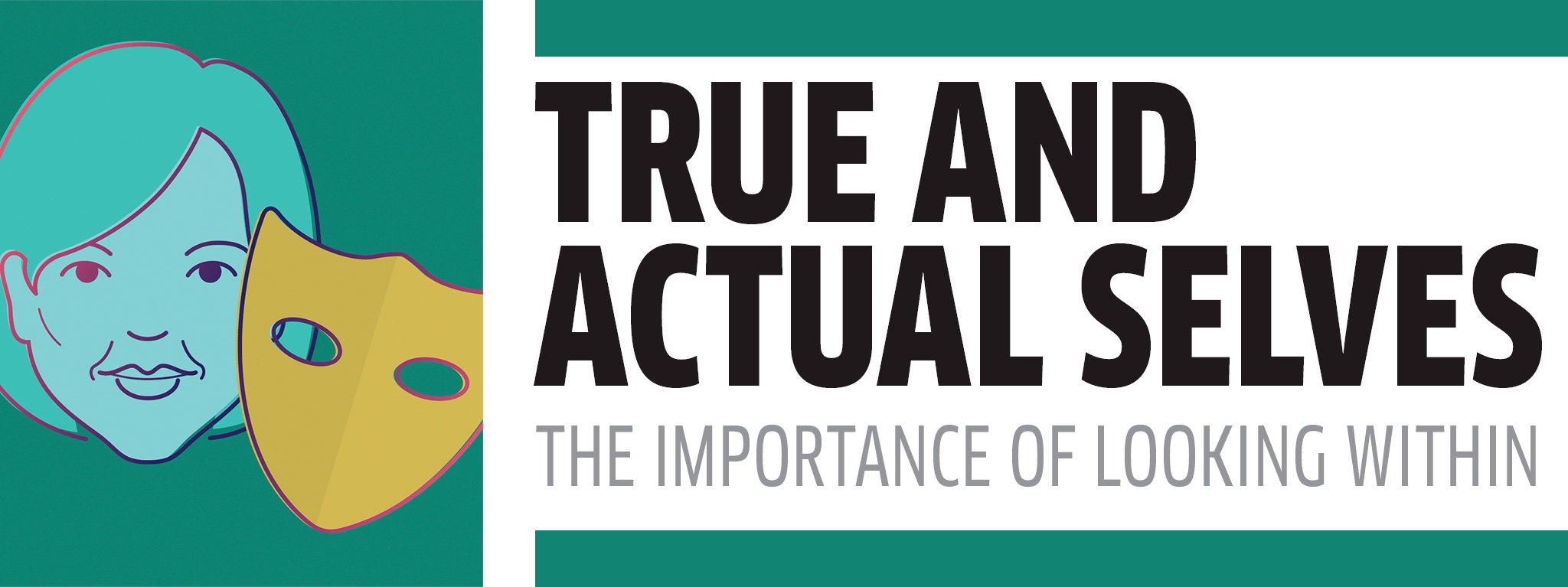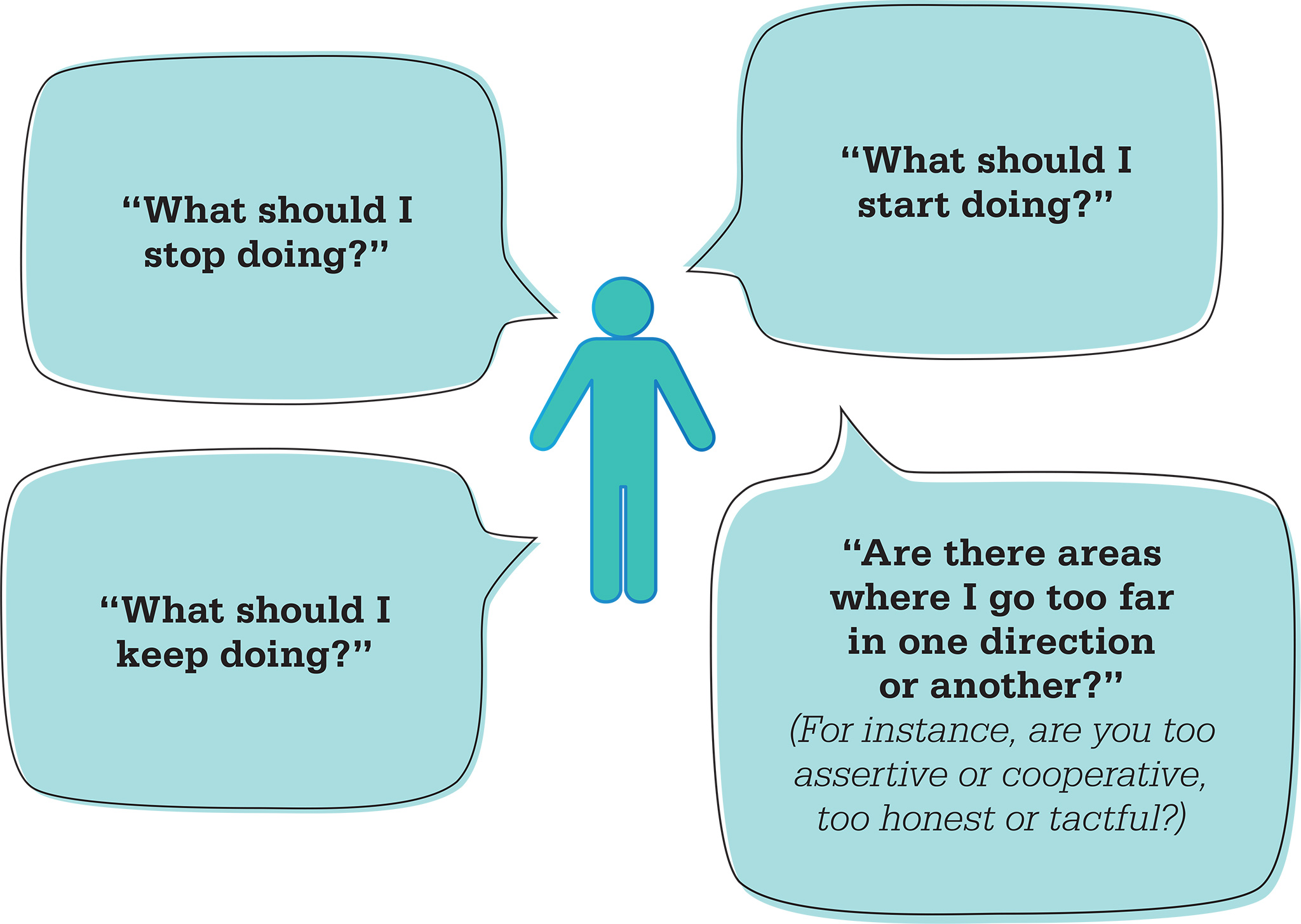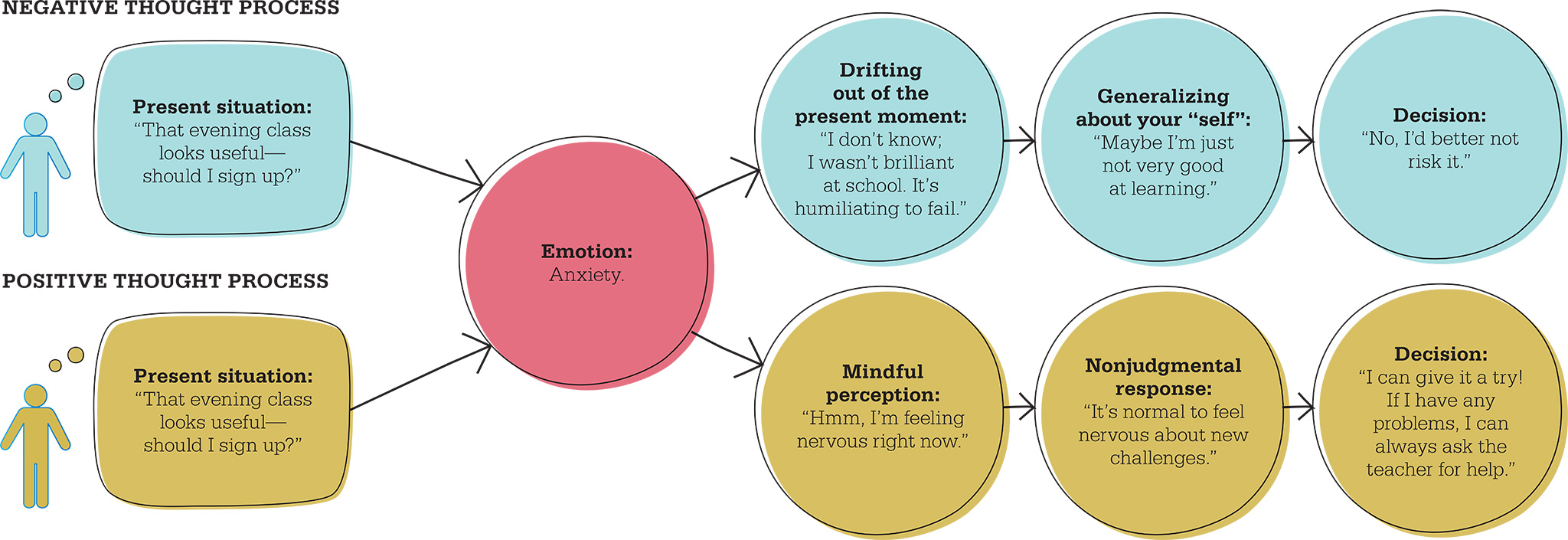
Our self-image goes right to the core of our being, and the path to success involves putting some thought into how we see ourselves. How can we cultivate a self-perception that’s both accurate and helpful?
Self-image can help or hinder us: we judge our options based on how we see ourselves. Accurate self-awareness is a skill that develops with practice and it’s something we need to refine over time through reflection.
Feeling good
There are benefits to being confident about our strengths and talents. A 2010 American study, for example, found that college students who were best at identifying and analyzing their strengths were also better at building on past successes and managing social support in general; they also tended to have greater well-being and higher self-esteem. Knowing what your strengths are, especially when they can be used in the service of your interests and passions, is a real advantage: it means you know what tools you have at your disposal.
The thing is, we’re prone to be a bit blind to our own strengths. If we think that, for instance, courage is an important character trait, we may assume it’s only right to be brave when circumstances demand. If we ourselves end up acting courageously at some point, we may think our behavior is only “ordinary.” What seems like “just what you should do” could in fact be a key to what’s best in you.

What is a personal “strength”?
Positive psychology defines a strength as a combination of natural aptitude, knowledge, and skills, which creates a potential for excellence as long as these qualities are cultivated. Therefore, we need to identify our talents, integrate those talents into how we see ourselves, and modify our behavior accordingly.
Part of this change in behavior involves limiting how much we focus on the negative. When we’re trying to accomplish something, it’s easy to look at what we don’t like about our lives and try to fix it, but there are studies that suggest it’s more productive to focus on appreciating what we do well, and to do those particular things more often. People who try this approach feel more engaged and motivated.
Trusted friends and family can offer a candid appraisal, both from “inside” and “outside” our interests. We tend to gravitate toward people who share our passions, so friends can help us build on existing strengths; family who aren’t automatically fascinated by our chosen field can provide loving reality checks.
Feeling good about ourselves is one of the biggest motivating factors available to us. Motivated people get things done and can sustain a productive pace for much longer than unhappy people. Work on appreciating what’s good in you and what’s good in other people too, and you may find that your path to success becomes a lot smoother.
 Taking Stock
Taking Stock
Consider the following questions. Your answers may reveal much about where your strengths lie:
- When people have different strengths from you, do you prefer to discount or learn from them? Are there “strengths” you don’t admire? Are there qualities you don’t particularly possess, but appreciate in others?
- What energizes you, and what exhausts and drains you?
- Are there people in your life who can help support you to make the most of your strengths?
 in the workplace
in the workplace
Do you have a colleague whose opinion you trust? Ask them these questions, and see if their answers indicate ways you can improve:

Playing it Right
It’s good to have strengths, but you don’t always have to use them at full strength. The Journal of Positive Psychology points out that it’s more helpful to adjust ourselves to each situation, and to be aware of the context in which we are operating: we don’t have to apply the same amount of force every time. When employing your strengths, ask yourself if you could use them more—or even, contrarily, underplay them—depending on what may be politically advantageous or in your best interests.

Being mindful
Buddhists believe that it is limiting to have a fixed view of ourselves, and research supports the view that we have “multiple selves” that emerge in different contexts. A lot of research is being done into the efficacy of “mindfulness,” a state of awareness cultivated in meditation. Mindfulness is based in the present moment, is nonjudgmental, and doesn’t leap to react to every thought and experience that passes over you.
Psychologists speak of the “S-ART” framework, which stands for self-awareness, self-regulation, and self-transcendence. What this means is that with practice we can develop a state of self-awareness that helps us manage our emotions and rise above our self-focused needs to see the bigger picture and relate better to others.
Mindfulness has four key aspects:
- Balanced and focused effort
- Discerning things clearly
- Mindful awareness
- Equanimity: observing things impartially, rather than letting our desires and discontents dominate us.
In other words, to be mindful, we need to focus on the present moment, see it for what it is, be aware of how we feel, and accept that this moment is what it is and stay with it, instead of racing back to memories or ahead to thoughts of the future.
 what is meditation?
what is meditation?
Meditation can be a dynamic practice and a powerful tool. Two traditional words for it are:
- bhävana (Sanskrit), meaning “cultivate” or “cause to become”
- sgoms (Tibetan), meaning “the development of familiarity” (self-awareness and insight)
By meditating, you’re training your mind and allowing yourself to become comfortable with mental states that will be beneficial to you.

Uncomfortable emotions
How does this affect us? How we see ourselves can limit our ability to act—and the more we put labels on events, interactions, and outcomes, the more vulnerable we become to biases. Memories of how we used to be can interfere with what we feel capable of now; generalizing from our experiences can limit our ideas of what we’re capable of.
We’ve all had the experience of an unpleasant occurrence bringing up uncomfortable associations, and the natural response is to try to push those feelings away. But this doesn’t help: the less self-aware we are, the more likely we are to succumb to mistaken beliefs. Memory is associative, and if we’re feeling a negative emotion, our mind naturally starts bringing up other negative experiences we’ve had, and we can end up in a downward spiral. It’s more helpful to acknowledge that we’re feeling something negative, and let it be what it is: an uncomfortable moment that will pass in its own time, which doesn’t have to mean anything more.
The consistency principle
We have a great psychological need to see ourselves as stable, rational beings. This can lead to problems if we do or say something that doesn’t match our self-image; the temptation is to rationalize it away, so that we can feel consistent with our beliefs and past actions. It is better to accept that inconsistency is part of human nature, and to acknowledge these “aberrations” instead of brushing them aside.
The more you’re clear on your good points, and the more able you are to be gentle and patient with your mistakes, the more comfortable you’ll be taking the steps that lead you to new heights.
 a mindful approach
a mindful approach
If you’re too rigid in your idea of what kind of a person you are, you can sometimes talk yourself out of broadening your horizons.
By staying in the present moment and acknowledging how you feel, you can stay “on topic” and remain constructive.

